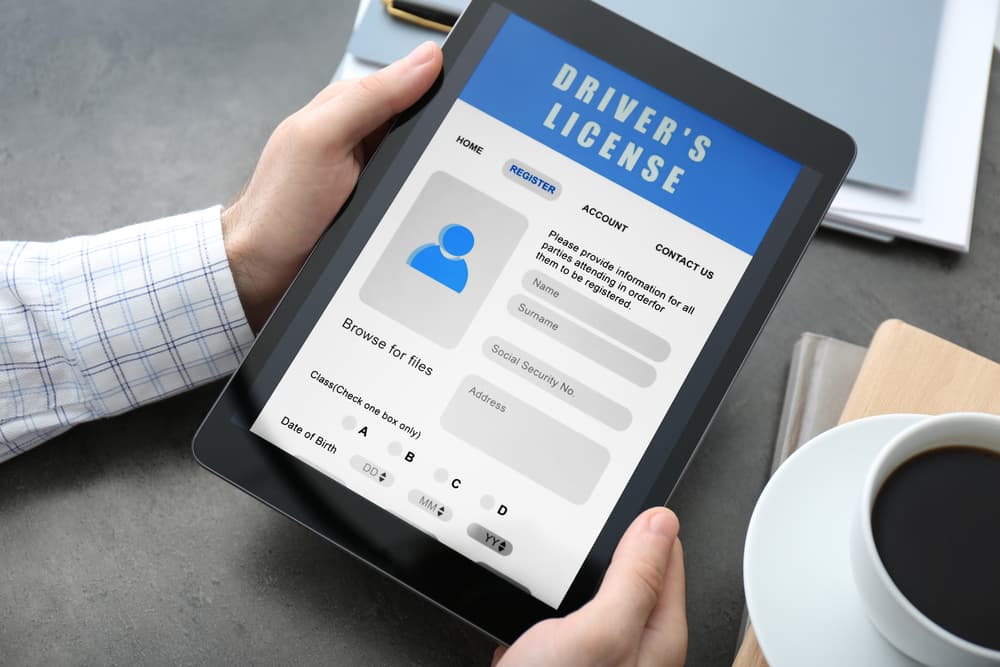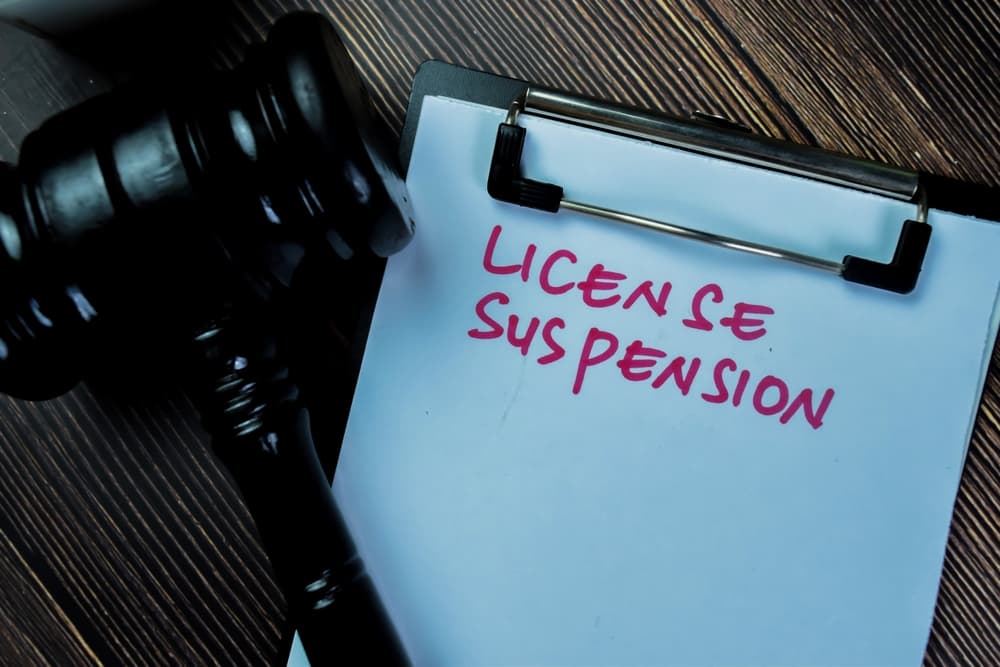Losing your driving privileges can significantly disrupt your life. If you're facing a driver's license hearing in Orange County, understanding and preparing for the process can help you.
Further, consult an Orange DUI defense lawyer. Whether your hearing stems from a DUI or other reasons, you want the right defense representation at driver’s license hearings.
Understanding Driver's License Hearings
A driver's license hearing is a legal process to determine whether your driving privileges should be suspended or revoked. These hearings are usually prompted by specific events such as DUI charges, accumulating too many driving points, or being in a severe traffic incident.
Why Your Case May Require a Hearing

Driver's license hearings are a huge aspect of maintaining road safety and responsibility in Orange County. These hearings are typically necessary after certain driving offenses or situations that raise concerns about a driver's ability to operate a vehicle safely.
Understanding why these hearings occur can help you better prepare for them if you find yourself in such a situation.
DUI Offenses
One of the most common reasons for a driver's license hearing in Orange County is following a DUI arrest.
The Department of Motor Vehicles (DMV) takes these cases very seriously.
- Immediate Action by DMV: Following a DUI arrest in Orange County, the Department of Motor Vehicles (DMV) receives notification. The DMV then takes quick steps to review the driver's license status of the individual involved.
- Automatic Suspension Risk: If the police arrest you for DUI, you face the risk of an automatic suspension of your driving privileges. This action is separate from any criminal charges and the DMV handles this administrative matter.
- Time-Sensitive Response Required: After a DUI arrest, you typically have a limited time, usually ten days, to request a hearing from the DMV. Failing to do so can lead to an automatic suspension.
- Review of Arrest Details: During the hearing, details of the arrest, such as the reason for the initial stop, the conduct of the field sobriety tests, and the results of any breathalyzer or blood tests, will be examined.
- Consideration of Past Record: The DMV also considers your driving record, mainly focusing on previous DUI offenses or related incidents.
- Opportunity to Contest Suspension: The hearing is your opportunity to contest the suspension of your license. You can present evidence, witness testimonies, or other information relevant to your case.
- Assessment of Public Safety Risk: The primary concern for the DMV in these hearings is assessing whether you pose a risk to public safety if allowed to continue driving.
- Potential for Conditional License: Depending on the outcome, you might be eligible for a conditional or restricted license, allowing limited driving privileges under specific conditions.
These points highlight how seriously authorities treat DUI offenses in Orange County and the importance of understanding the DMV hearing process in such cases.
If faced with a DUI arrest, being aware of these factors is essential in preparing for the subsequent DMV hearing.
Accumulation of Points
In Orange County, the DMV keeps a close watch on drivers' records, and accumulating too many points can trigger a hearing. This system aims to monitor and address patterns of unsafe driving behavior. The points accrue from various traffic violations, each carrying a specific point value. Here's a closer look at how this works.
The point system in Orange County operates under California's broader DMV guidelines.
Drivers accumulate points on their records for traffic violations. Examples include speeding tickets, causing accidents, or more severe offenses like reckless driving. Each incident is assigned a point value, typically one to two points per violation.
Drivers usually reach the threshold for a hearing due to point accumulation when they accumulate:
- Four or more points in 12 months,
- Six or more points in 24 months, or
- Eight or more points in 36 months.
When you reach these thresholds, the DMV will likely schedule a hearing to review your driving record. This hearing is an administrative process to evaluate whether your driving privileges should be continued, restricted, or suspended.
The hearing will involve a thorough review of your driving history, including the specific incidents that led to the accumulation of points. The DMV will consider the severity of the violations, the time frame in which they occurred, and any mitigating factors that might be relevant.
During the hearing, you have the opportunity to present your case. It can include explaining the violations, demonstrating changes in your driving behavior, or showing evidence of taking steps towards safer driving practices, such as attending a defensive driving course.
If the DMV finds that your driving poses a risk to public safety, they may decide to suspend your license. Sometimes, they offer a probationary period or a restricted license, allowing you to drive under certain conditions, like commuting to work or school.
California law and the DMV do not treat all traffic violations equally. More serious offenses like DUIs or hit-and-run incidents carry higher point values and can lead to more immediate and severe DMV actions.
If you're nearing the point threshold for a DMV hearing, it's advisable to take proactive steps to improve your driving habits and seek legal advice to prepare for the potential hearing.
This proactive approach can protect your driving privileges and ensure your continued ability to navigate the roads of Orange County legally and safely.
Other Serious Violations
In Orange County, serious driving offenses such as hit-and-run incidents or reckless driving are treated with a high degree of seriousness and often lead to a DMV hearing. These offenses are major violations because they can cause significant harm or demonstrate a blatant disregard for road safety.
When a driver in Orange County commits a serious violation like a hit-and-run or reckless driving, the incident gets reported to the DMV. These offenses typically add significant points to a driver's record and can trigger an automatic review of their driving privileges.
For instance, a hit-and-run offense may add two points, while reckless driving can add similar points depending on the circumstances and severity of the offense.
The process following such violations usually begins with the DMV issuing a notice of a scheduled hearing. This hearing is an administrative process to determine whether to suspend or revoke the driver's license. The severity and nature of the incident and the driver's overall record are critical factors in this determination.
During the hearing, the DMV reviews the details of the incident, considering factors like the danger posed to public safety and any previous traffic violations or patterns of unsafe driving.
The driver has the opportunity to present their case, which can include explanations for the behavior, any mitigating circumstances, and evidence of remedial actions taken, such as completing a driver safety course or community service.
The outcome of this hearing can vary. The DMV may suspend or revoke the driver's license for serious violations. However, depending on the circumstances and the driver's history, the DMV might offer alternatives such as a restricted license or a probationary period with specific conditions.
Drivers in Orange County need to understand how severely the law views these serious violations. The repercussions of a hit-and-run or reckless driving incident go beyond immediate legal consequences and can significantly impact one's driving privileges and overall record.
In these situations, seeking legal advice can be beneficial. A lawyer can help with the DMV hearing process, advise on the best course of action, and represent the driver's interests, aiming to achieve the most favorable outcome possible under the circumstances.
The Hearing Process

When you receive notification that you need a hearing, it's essential to respond promptly. Ignoring this notification can result in automatic suspension of your license. The hearing is an administrative process, not criminal, but it's still a formal legal procedure.
Preparation is vital to presenting a strong case if you have a scheduled driver's license hearing in Orange County. This preparation involves gathering relevant documentation, understanding the issues, and consulting a lawyer to guide you.
Gather Documentation
Having the proper documents for your hearing cannot be overstated. These documents serve as the backbone of your case, providing tangible evidence to support your arguments.
Here are the types of documentation you should consider:
- Driving Record: Obtain a copy of your driving record from the DMV. This record will show your history of traffic violations, accidents, and any points accumulated, giving a clear picture of your driving history.
- Evidence Related to the Incident: Gather any relevant evidence if your hearing is due to a specific incident, such as a DUI or a serious traffic violation. It can include police reports, Breathalyzer test results, or eyewitness statements.
- Character References: Letters from employers, community leaders, or educators that speak to your character and responsibility can be influential. These references can provide a broader context to your behavior and demonstrate your positive contributions to the community.
- Proof of Remedial Actions: If you've taken steps to improve your driving habits, such as completing a defensive driving course or attending counseling, bring documentation of these efforts. It shows your commitment to becoming a safer driver.
Understand the Issues at Hand
Knowing why the hearing is happening and the specific aspects of your case that need addressing is helpful. This understanding helps you focus your preparation and tailor your defense.
Review the notice from the DMV carefully and note:
- Reason for the Hearing: Identify the specific reason for the hearing, whether it's due to a DUI, accumulation of points, or another severe violation.
- Points of Contention: Determine what elements of your driving record or recent incidents might be problematic. Knowing these can help anticipate questions and challenges during the hearing.
Consult a Lawyer
While it's possible to represent yourself at a DMV hearing, consulting with a lawyer familiar with the process and the nuances of traffic law in Orange County can be a game-changer.
A lawyer can offer:
- Guidance on Preparation: They can explain the legal aspects of your hearing and what documents and evidence will be most effective.
- Insight into the Process: A lawyer can explain how the hearing will proceed, the type of questions you might face, and the criteria the hearing officer will use to make a decision.
- Representation at the Hearing: If you choose, a lawyer can speak on your behalf and ensure you present your case in the best possible light.
Preparing for a driver's license hearing in Orange County involves a combination of detailed documentation, a clear understanding of the issues, and, ideally, the guidance of a legal professional. By taking these steps, you can enter your hearing well-prepared and increase your chances of a favorable outcome.
During the Hearing
This is your opportunity to present evidence, explain your situation, and make a case for keeping your license. Honesty is the best policy in these hearings. Clear, straightforward answers are more effective than evasive responses.
Treat the hearing with the seriousness it deserves. Dress appropriately and respect the hearing officer and others involved.
Possible Outcomes
The outcome of a hearing can range from no action against your license to suspension or revocation. In some cases, you might receive an offer of a restricted license that allows you to drive under certain conditions, like commuting to work.
After the Hearing
If your license gets suspended, adhere to the terms of the suspension. If granted a restricted license, understand and comply with its limitations.
After a suspension, find out what steps you need to take for reinstatement. It might include attending driving classes, paying fines, or meeting other requirements set by the DMV. Your defense lawyer can advise you on all of this.
An Orange County Criminal Defense Attorney Can Help

Driver's license hearings in Orange County are severe matters with significant consequences. A Orange County criminal defense lawyer can prepare you thoroughly for the hearing and defend your driving privileges.
While facing this challenge, remember that a lawyer can provide guidance and representation, navigate the hearing more effectively, and advocate for your rights.